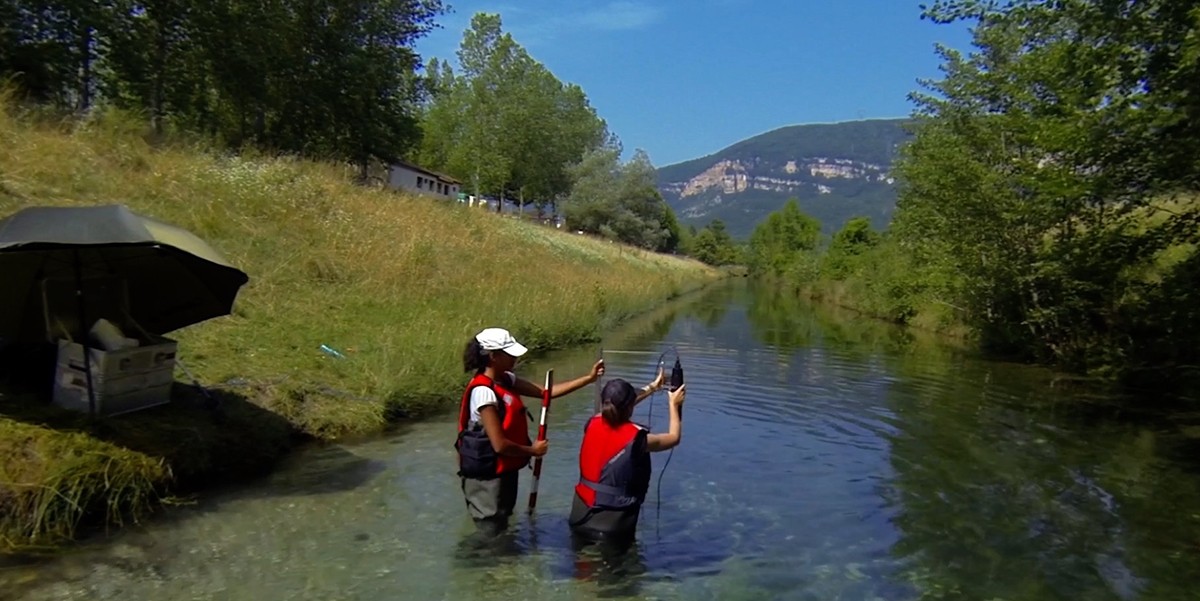Emergent properties of bio-physical self-organization in streams
Self-organization, the formation of spatial patterns due to ecological interactions, is a widespread phenomenon in natural ecosystems. Theoretical studies indicate that self-organization is an important regulating process in ecosystems. For instance, it can make ecosystems more resistant to disturbance. Studying these emergent effects of self-organization helps us manage and protect nature against climate change and human impacts. In her thesis, Loreta Cornacchia studied spatial self-organization of vegetation in rivers. In particular, I focused on the interaction between water flow and submerged vegetation, and its effects on river flows and biodiversity. My research indicates that vegetation buffers river ecosystems against changing hydrological conditions. These hydrological conditions can range from low flows to high flows (floods). At the same time, submerged vegetation supports the river's biodiversity. By maintaining habitat diversity, it creates conditions that are favourable for other species. Hence, this self-organization process might provide a nature-based solution to flow regulation. These findings suggest there might be a need to reconsider current management practices that typically remove vegetation because it is perceived to increase the risk of river flooding. As global climate change and human modifications to rivers are expected to increase hydrological extremes, this study shows how self-organized river ecosystems can adapt to maintain suitable flow conditions while also supporting high aquatic biodiversity.

Dissertation: http://hdl.handle.net/(...)1e-aebb-ad676e974095
| Last modified: | 23 February 2021 08.47 a.m. |
More news
-
25 April 2025
Leading microbiologist Arnold Driessen honoured
On 25 April 2025, Arnold Driessen (Horst, the Netherlands, 1958) received a Royal Decoration. Driessen is Professor of Molecular Microbiology and chair of the Molecular Microbiology research department of the Faculty of Science and Engineering at the...
-
24 April 2025
Highlighted papers April 2025
The antimalarial drug mefloquine could help treat genetic diseases such as cystic fibrosis, Duchenne muscular dystrophy, as well as some cancers.
-
22 April 2025
Microplastics and their effects on the human body
Professor of Respiratory Immunology Barbro Melgert has discovered how microplastics affect the lungs and can explain how to reduce our exposure.
